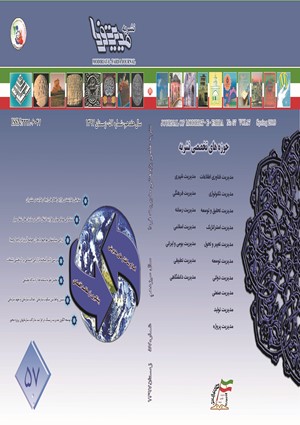تبیین نقش مبانی فلسفی و مفروضات علوم بر متدولوژی و روشهای تولید دانش و حل مسائل در شاخههای مهندسی صنایع
محورهای موضوعی :
1 - دانشگاه علم و صنعت ایران
کلید واژه: مبانی فلسفی, پارادایم, متدولوژی, مهندسی صنایع, مهندسی سیستمها,
چکیده مقاله :
مبانی فلسفی هر دانش بطور متعارف متشکل از عناصر ارزش شناسی، معرفت شناسی، هستی شناسی، انسان شناسی و روش شناسی است که از آنها به عنوان اجزای پارادایم علمی یاد میشود. سیر فلسفه علم جدید در قرون اخیر از پارادایم اثبات گرایی به پارادایمهای تفسیرگرایی و انتقادی شیفت پیدا کرده و در بستر پارادایم پست مدرن، سنت پراگماتیسم و تئوری پیچیدگی و.... شکل گرفته است. پارادایم شیفت از اثبات گرایی به تفسیرگرایی و.... نه تنها در حوزههای علوم انسانی و علوم اجتماعی نقش آفرینی نموده است بلکه حوزههای علوم پایه و مهندسی را نیز متأثر نموده است. ما در این مقاله مبانی پارادایمی پارهای از روشهای سیستمی متأثر از پارادایمهای فوق را بررسی و ارائه نمائیم و چگونگی تاثیرپذیری روش های تحلیل و سپس حل مساله را با توجه به تفاوت ها در مبانی، فلسفه و پارادایم ها آن ها بررسی می کنیم.
The structure of human knowledge in the fields of humanities and social sciences, including management as a discipline, consists of philosophical assumptions and foundations, scientific principles and theories, and the and practical achievements for solving problems. The philosophical foundations of every knowledge are conventionally composed of elements of value, epistemology, ontology, anthropology, and methodology, which are referred to as the components of scientific paradigm. The new philosophy trend in the recent centuries, has shifted from the positivist paradigm to critical and interpretative paradigms, and is shaped into the context of the postmodern paradigm, the pragmatism tradition, and the complexity theory. Each of the above scientific paradigms has foundations in values, epistemology, ontology, anthropology, methodology and its own research methods. This means that today's knowledge in each field, due to the effects of each conventional philosophy of science paradigms, has led to the production of different scientific principles and theories and the distinctive applied achievements. So, opinions and ideas of the thinkers in each field are different. The shifting paradigm from positivism to interpretativeism not only has contributed to the fields of humanities and social sciences, but also effects the fields of science and engineering, such as, the emergence of fuzzy logic along with mathematical logic in the field of basic sciences, quantum mechanics view alongside Newtonian mechanics in the field of engineering. In this paper, we seek to recognize the knowledge developments roots in the branches of industrial engineering, such as the development of "hard operations research", " soft operations research " and "hard systems to soft systems thinking" and "statistical quality control" To "Total Quality Management". Under the influence of paradigmatic changes, developments have taken place in other branches of knowledge forming the industrial engineering as an interdisciplinary scientific discipline for the future. We also examine the systemic methods paradigmatic foundations influenced by the above paradigms and examine how to influence the methods of analysis and problem-solving methods with respect to the differences in their basics, philosophies and paradigms.
